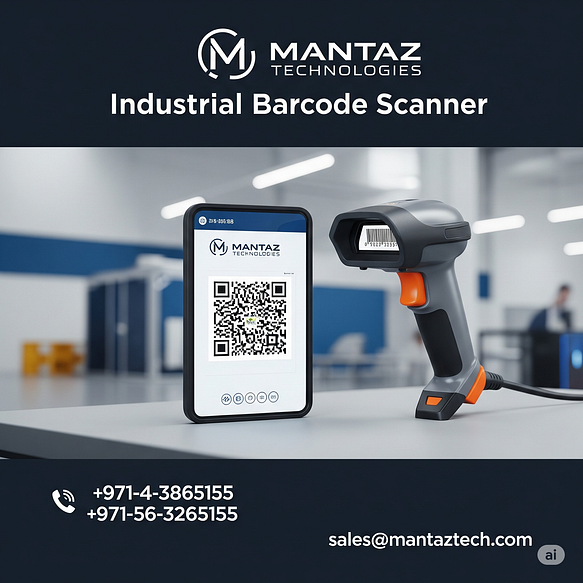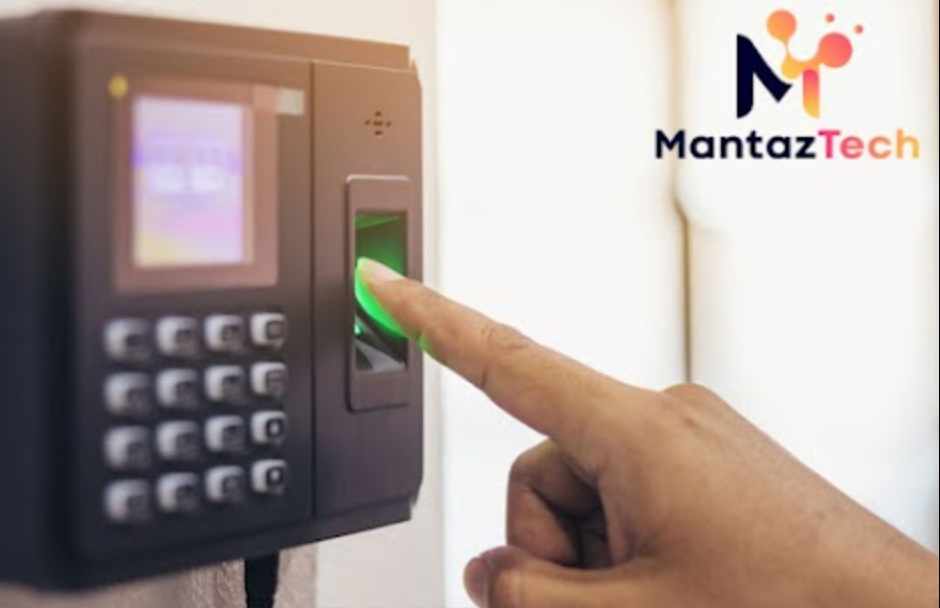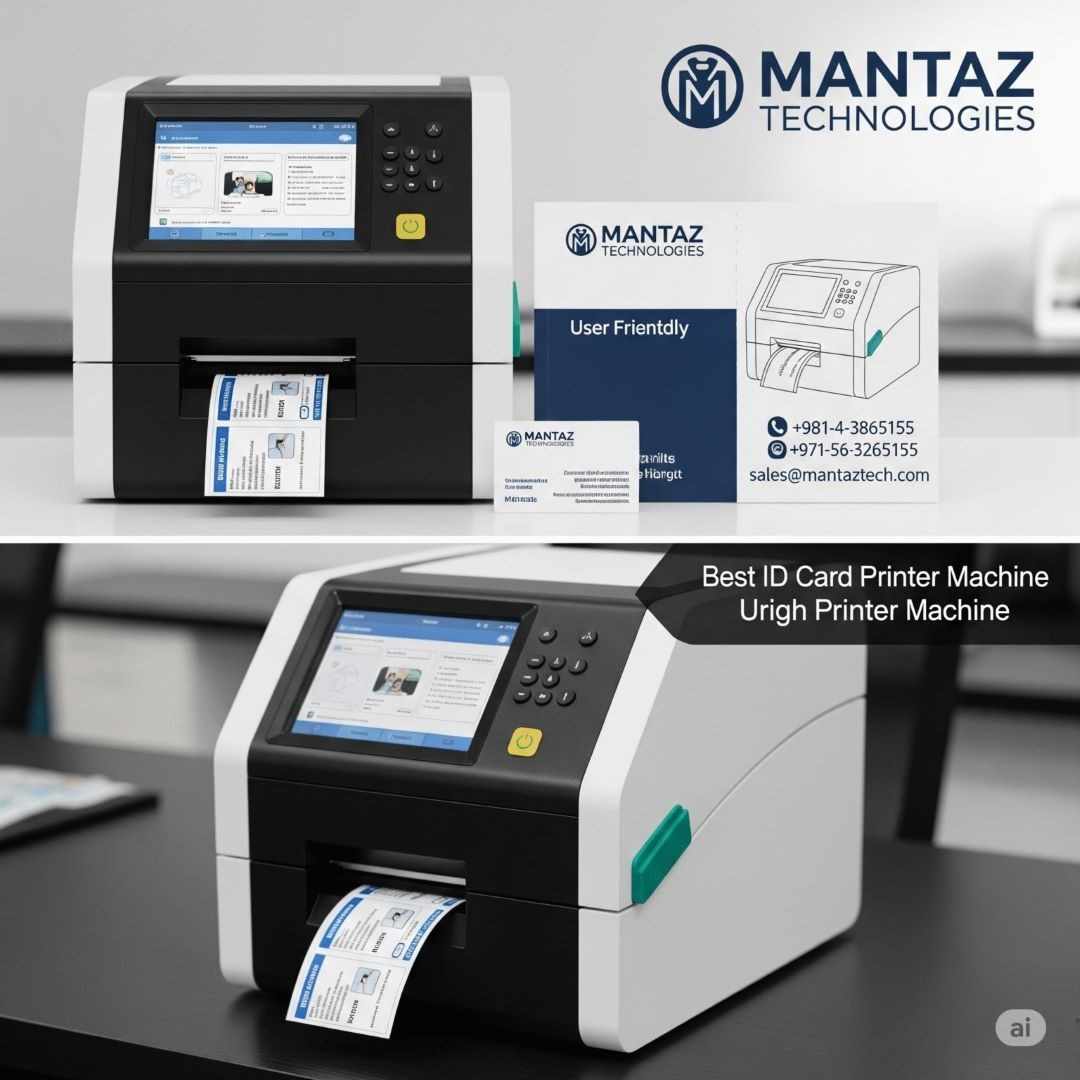Biometric Machine Price in UAE: Mantaz Technologies
In today’s fast-paced business environment, ensuring accurate time tracking and employee attendance is essential for productivity and operational efficiency. One of the most reliable solutions for this is using a biometric attendance machine.
With its ability to eliminate issues such as buddy punching and manual errors, businesses in the UAE are increasingly turning to biometric systems to streamline their attendance process. However, with various options available, understanding the biometric machine price in UAE and selecting the right biometric attendance machine in Dubai can seem overwhelming.
In this article, we will guide you through the factors to consider, and how Mantaz Technologies can provide solutions tailored to your needs.
Why Choose a Biometric Attendance Machine in Dubai?
Biometric systems rely on unique physical traits—such as fingerprints, facial recognition, or iris scans—to verify the identity of an individual. This makes them one of the most secure methods for tracking employee attendance, reducing the possibility of fraud or attendance discrepancies.
For businesses in Dubai, biometric systems are not just a luxury but a necessity. The high pace of corporate environments in the UAE requires systems that can handle large volumes of employees, ensuring that attendance data is captured accurately and in real-time. Furthermore, biometric systems help businesses adhere to compliance standards, especially in organizations where safety and precision are paramount.
Factors Influencing Biometric Machine Price in UAE:
When looking to invest in a biometric attendance machine, the price is one of the first considerations. However, it’s crucial to understand that the biometric machine price in UAE can vary based on several factors, including:
1. Technology Type
There are different types of biometric systems available, such as:
• Fingerprint-Based Systems: The most common biometric machine. They are reliable, cost-effective, and offer a quick authentication process.
• Face Recognition Systems: Growing in popularity, face recognition systems offer contactless attendance tracking, making them ideal in post-pandemic environments.
• Iris Scanning Systems: A highly secure option, although these tend to be more expensive and are usually used for high-security facilities.
The technology you choose will directly impact the cost. For example, while fingerprint-based biometric systems are more affordable, face recognition and iris scanning machines are typically priced higher due to the sophisticated technology involved.
2. Brand and Quality
The reputation of the brand also plays a significant role in the price of biometric machines. Well-established brands in the UAE, like Mantaz Technologies, tend to offer more reliable, high-quality systems that come with customer support and warranties. While these may be priced slightly higher, they often provide better value in the long run due to their durability and after-sales service.
3. Features and Functionality
Biometric attendance machines come with varying features, and the more advanced the functionality, the higher the price. Some of the common features you can expect include:
• Multiple authentication options: Some systems allow multiple biometric identifiers, such as both fingerprint and face recognition.
• Cloud Integration: Systems that offer cloud-based storage or integration with HR software tend to be more expensive but provide enhanced flexibility.
• Time and Attendance Software: Machines with integrated software for payroll management and reporting may also influence the price.
While it’s tempting to go for the most advanced system, it’s crucial to assess the specific needs of your business before making an investment.
4. Installation and Maintenance Costs:
Along with the initial purchase price of the biometric attendance machine in Dubai, don’t forget to factor in installation and ongoing maintenance costs. Some companies offer full installation services as part of the package, while others might charge extra for these services. Additionally, regular software updates, calibration, and machine servicing can add to the long-term costs.
Average Biometric Machine Price in UAE:
On average, the biometric machine price in UAE can range from AED 500 to AED 5,000 or more, depending on the factors mentioned above.
• Basic Fingerprint Machines: AED 500 – AED 1,500
• Mid-Range Face Recognition Machines: AED 1,500 – AED 3,000
• High-End Iris Scanning Systems: AED 3,000 – AED 5,000+
At Mantaz Technologies, we offer a range of biometric systems to suit businesses of all sizes and budgets. Whether you're a small business in need of a cost-effective solution or a large corporation requiring an advanced system, we have the right product for you.
Why Choose Mantaz Technologies for Biometric Machines in UAE?
Mantaz Technologies has earned a strong reputation in the UAE for providing reliable and affordable biometric solutions. Here’s why businesses trust us:
1. Competitive Pricing
We offer a variety of biometric systems at competitive prices, ensuring that you get the best value for your investment.
2. Customization
Our biometric machines are customizable to suit the unique needs of your business, whether it’s a small office or a large enterprise.
3. Reliable After-Sales Support
We provide comprehensive customer support, including installation, training, and maintenance, to ensure that your system functions optimally.
4. Scalability
Whether you are looking for a single unit or a network of machines for multiple locations, we can scale the solution to meet your needs.
FAQ:
1. Are biometric attendance systems suitable for large businesses in Dubai?
Yes, biometric attendance machines are ideal for businesses of all sizes, including large enterprises in Dubai. These systems can handle a high volume of employees and offer features like multiple authentication methods (e.g., fingerprint and facial recognition) and cloud integration, making them scalable for growing businesses.
2. How does a biometric attendance machine work in Dubai?
A biometric attendance machine in Dubai works by scanning a unique biological feature of an individual, such as their fingerprint, face, or iris, to verify their identity. Once verified, the system records the time and attendance of the employee automatically, which is then uploaded to the software or cloud system for payroll and reporting purposes.
3. What is the price of a biometric attendance machine in UAE?
The biometric machine price in UAE can vary depending on the type, brand, and features you choose. Generally, prices range from AED 500 for basic fingerprint-based systems to AED 5,000 for advanced face recognition or iris scanning biometric systems. At Mantaz Technologies, we offer competitive pricing, ensuring you get the best biometric solution within your budget.
Conclusion:
When looking for the right biometric attendance machine in Dubai, it’s essential to consider your business's specific needs and budget. By understanding the factors that influence biometric machine prices in UAE, you can make an informed decision that not only fits your requirements but also provides the best return on investment.
Mantaz Technologies is committed to offering state-of-the-art biometric solutions at competitive prices. Our systems are designed to streamline attendance tracking while ensuring security, accuracy, and ease of use. If you are ready to take the next step toward improving your business’s time management, explore our range of biometric attendance machines today!
For more information, visit our website: Mantaz Technologies









Write a comment ...